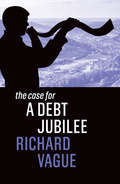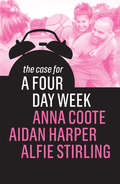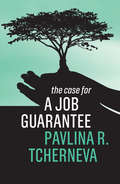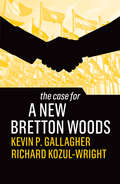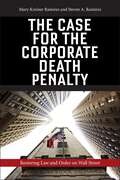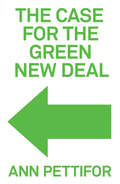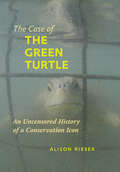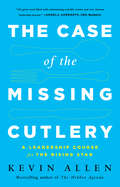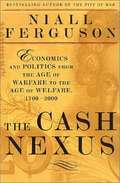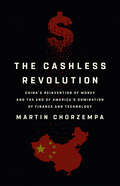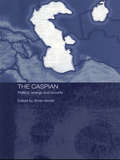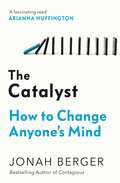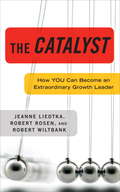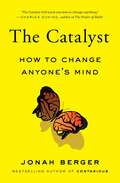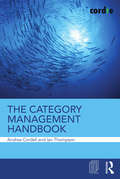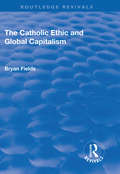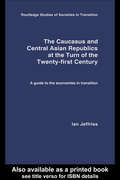- Table View
- List View
The Case for a Debt Jubilee (The Case For)
by Richard VagueWe were drowning in in record levels of debt before the COVID-19 crisis, and we are now deluged in it. U.S. private-sector loans have tripled relative to income since 1950 – and government debt is also at an all-time high. Soaring debt burdens individuals, stifles growth, compounds inequality, and brings falling living standards for millions. Richard Vague’s new book argues that, contrary to mainstream assumptions, we cannot simply hope that the trend will correct itself. Mounting debt is a feature of our economic system, not a bug: debts perpetually grow and compound, polarizing and impoverishing economies if not overtly dealt with. He offers a detailed plan for how we can restructure a range of debts – such as student loans, auto loans, medical debt and more – and offer hard-pressed debtors a ‘jubilee’ now, not in some utopian future. Vague’s bold polemic contains a wealth of ideas that will free millions from modern-day debt peonage, reduce inequality and bring new vigor to the economy as it struggles to emerge from the pandemic.
The Case for a Four Day Week
by Anna Coote Aidan Harper Alfie StirlingNot so long ago, people thought that a ten-hour, six-day week was normal; now, it’s the eight-hour, five-day week. Will that soon be history too? In this book, three leading experts argue why it should be. They map out a pragmatic pathway to a shorter working week that safeguards earnings for the lower-paid and keeps the economy flourishing. They argue that this radical vision will give workers time to be better parents and carers, allow men and women to share paid and unpaid work more equally, and help to save jobs – and create new ones – in the post-pandemic era. Not only that, but it will combat stress and illness caused by overwork and help to protect the environment. This is essential reading for anyone who has ever felt they could live and work a lot better if all weekends were three days long.
The Case for a Job Guarantee (The Case For)
by Pavlina R. TchernevaOne of the most enduring ideas in economics is that unemployment is both unavoidable and necessary for the smooth functioning of the economy. This assumption has provided cover for the devastating social and economic costs of job insecurity. It is also false. In this book, leading expert Pavlina R. Tcherneva challenges us to imagine a world where the phantom of unemployment is banished and anyone who seeks decent, living-wage work can find it - guaranteed. This is the aim of the Job Guarantee proposal: to provide a voluntary employment opportunity in public service to anyone who needs it. Tcherneva enumerates the many advantages of the Job Guarantee over the status quo and proposes a blueprint for its implementation within the wider context of the need for a Green New Deal. This compact primer is the ultimate guide to the benefits of one of the most transformative public policies being discussed today. It is essential reading for all citizens and activists who are passionate about social justice and building a fairer economy.
The Case for a New Bretton Woods (The Case For)
by Kevin P. Gallagher Richard Kozul-WrightAfter the 2008–9 global financial crisis, reforms to promote stability, social inclusion, and sustainability were promised but not delivered. As a result, the global economic situation, marred by inequality, volatility, and climate breakdown, remains dysfunctional. Now, the economic fallout from the Covid-19 pandemic offers us a second chance. Kevin Gallagher and Richard Kozul-Wright argue that we must grasp it by implementing sweeping reforms to how we govern global money, finance, and trade. Without global leaders prepared to boldly rewrite the rules to promote a prosperous, just, and sustainable post-Covid world economic order – a Bretton Woods moment for the twenty-first century – we risk being engulfed by climate chaos and political dysfunction. This book provides a blueprint for change that no one interested in the future of our planet can afford to miss.
The Case for the Corporate Death Penalty: Restoring Law and Order on Wall Street
by Steven A. Ramirez Mary Kreiner RamirezA critical examination of the wrongdoing underlying the 2008 financial crisisAn unprecedented breakdown in the rule of law occurred in the United States after the 2008 financial collapse. Bank of America, JPMorgan, Citigroup, Goldman Sachs, and other large banks settled securities fraud claims with the Securities and Exchange Commission for failing to disclose the risks of subprime mortgages they sold to the investing public. But a corporation cannot commit fraud except through human beings working at and managing the firm. Rather than breaking up these powerful megabanks, essentially imposing a corporate death penalty, the government simply accepted fines that essentially punished innocent shareholders instead of senior leaders at the megabanks. It allowed the real wrongdoers to walk away from criminal responsibility. In The Case for the Corporate Death Penalty, Mary Kreiner Ramirez and Steven A. Ramirez examine the best available evidence about the wrongdoing underlying the financial crisis. They reveal that the government failed to use its most powerful law enforcement tools despite overwhelming proof of wide-ranging and large-scale fraud on Wall Street before, during, and after the crisis. The pattern of criminal indulgences exposes the onset of a new degree of crony capitalism in which the most economically and political powerful can commit financial crimes of vast scale with criminal and regulatory immunity. A new economic royalty has seized the commanding heights of our economy through their control of trillions in corporate and individual wealth and their ability to dispense patronage. The Case for the Corporate Death Penalty shows that this new lawlessness poses a profound threat that urgently demands political action and proposes attainable measures to restore the rule of law in the financial sector.
The Case for the Green New Deal
by Ann PettiforWhat is the Green New Deal and how can we afford it?To protect the future of life on earth, we need to do more than just reimagine the economy—we have to change everything. One of the seminal thinkers of the program that helped ignite the US Green New Deal campaign, Ann Pettifor explains how we can afford what we can do, and what we need to do, before it is too late. The Case for the Green New Deal argues that economic change is wholly possible, based on the understanding that finance, the economy and the ecosystem are all tightly bound together. The GND demands total decarbonization and a commitment to an economy based on fairness and social justice. It proposes a radical new understanding of the international monetary system. Pettifor offers a roadmap for financial reform both nationally and globally, taking the economy back from the 1%. This is a radical, urgent manifesto that we must act on now.
The Case of Nascent Pharmaceuticals: Overcoming Individual Immunities to Help a Team Succeed
by Lisa Laskow Lahey Robert KeganThere are several ways to combat individual and organizational immunity to change. This chapter examines the case of one woman, Cathy, whose biggest change challenge emerged out of a groupwide initiative with her whole marketing team. According to the authors, this collective approach may be the most effective way to deliver on facilitating individual adaptive change in the context of an intact group's desire to improve its collective performance. This chapter is excerpted from "Immunity to Change: How to Overcome It and Unlock the Potential In Yourself and Your Organization."
The Case of the Floundering Expatriate (HBR Case and Commentary)
by Fons Trompenaars Susan Schneider Bjorn Johansson Gordon Adler Douglas A. Ready Roman BorboaFrank Waterhouse, CEO of Argos Diesel, Europe, is exasperated. Bert Donaldson, who arrived in Zurich a year ago to create a European team--to facilitate communication among the parts suppliers that Argos has acquired over the past two years--just isn't working out. Although he has excellent credentials, both as a successful team builder at Argos International in Detroit and as a teacher in Cairo, his style seems abrasive here and he is behind schedule in implementing the team-building program. Moreover, Waterhouse is worried that Donaldson's failure will reflect badly on himself. But Waterhouse can't simply fire Donaldson. Donaldson is a smart man with a record of genuine successes in the States. If he gets fired, his career may be destroyed. Further, the CEO of Argos International thinks the world of him and is counting on Waterhouse to make this assignment work. Can Waterhouse teach Donaldson cultural awareness? Can he help him become effective in his job? Waterhouse has scheduled a conversation with Donaldson to discuss the situation. What should he say? For teaching purposes, this is the case-only version of the HBR case study. The commentary-only version is reprint 95401Z. The complete case study and commentary is reprint 95401.
The Case of the Green Turtle: An Uncensored History of a Conservation Icon
by Alison RieserThe true story of the controversial battle to save the world’s most famous endangered species.The journals of early maritime explorers traversing the Atlantic Ocean often describe swarms of sea turtles, once a plentiful source of food. Many populations had been decimated by the 1950s, when Archie Carr and others raised public awareness of their plight. One species, the green turtle, has been the most heavily exploited due to international demand for turtle products, especially green turtle soup. The species has achieved some measure of recovery due to thirty years of conservation efforts, but remains endangered. In The Case of the Green Turtle, Alison Rieser provides an unparalleled look into the way science and conservation interact by focusing on the most controversial aspect of green turtle conservation—farming. While proponents argued that farming green sea turtles would help save them, opponents countered that it encouraged a taste for turtle flesh that would lead to the slaughter of wild stocks. The clash of these viewpoints once riveted the world.Rieser relies on her expertise in ocean ecology, policy, and law to reveal how the efforts to preserve sea turtles changed marine conservation and the way we view our role in the environment. Her study of this early conservation controversy will fascinate anyone who cares about sea turtles or the oceans in which they live.
The Case of the Missing Cutlery: A Leadership Course for the Rising Star
by Kevin AllenKevin Allen, author of the Wall Street Journal best-selling The Hidden Agenda: A Proven Way to Win Business and Create a Following, is back, with a fabulously entertaining (and true) tale of a newly minted leader made buoyant during The Case of the Missing Cutlery: A Leadership Course for the Rising Star. As a young manager at an airline catering facility, Kevin had to find out why silverware was disappearing at a rapid clip. The route to solving this mystery of The Case of the Missing Cutlery results in Kevin learning to rise to the occasion, to become a leader who inspires followers and is able to rely on their hard work and support. Kevin has called upon this story countless times during his long career in advertising, and has shared it broadly on the BBC's Radio 4 program, "Four Thought." [This edition contains content previously published as The Buoyant Leader.]
The Case of the Unidentified Industries - 2013
by Mihir A. Desai William E. Fruhan Elizabeth A. MeyerHelps students to understand how the characteristics of a business are reflected in its financial statements. This case consists of an exercise in which students are given balance sheet data in percentage form and other selected financial data for companies in 14 industries. The specific task assigned to the student is to use the balance sheet data along with their basic knowledge of the operating conditions and characteristics of these 14 industries to match each industry to the correct data.
The Case of the Unidentified Ratios
by Josh LernerAn investment banking analyst seeks to reconstruct which financial ratios go with which companies.
The Cash Nexus: Economics And Politics From The Age Of Warfare Through The Age Of Welfare, 1700-2000
by Niall FergusonFerguson (political and financial history, U. of Oxford, UK) offers an explanation of how the modern world of economics has been shaped over the past three centuries, arguing that major political events such as wars explain the evolution of our fundamental economic and political institutions. Annotation c. Book News, Inc. , Portland, OR (booknews. com)
The Cashless Revolution: China's Reinvention of Money and the End of America's Domination of Finance and Technology
by Martin ChorzempaFinancial Times, Best Books of 2022: Economics The startling picture of how China&’s revolution in finance and technology is changing both Wall Street and the way individuals manage their personal finances. The future of finance – the way Wall Street operates and how individuals manage their money - is on the verge of upheaval. And the force underlying the change comes from China, where finance and technology are being merged into a system with consequences that resonate far beyond China&’s border. The changes of this global revolution in finance and technology - fintech - will be as powerful as those wrought in social media, retailing and advertising by giants such as Amazon, Facebook, Google, and Twitter, which have overturned how we shop and communicate. China reinvented money with lightning speed, transforming a backward, antiquated cash-based finance system into one centered on super-apps created by technology giants Alibaba and Tencent. More powerful than anything available outside of China, they allow their billion users to pay, borrow, invest, buy goods and services, travel, chat (and far more) all fused together in one mobile phone application. Think Facebook, Google, Twitter, Goldman Sachs, Amazon, J.P. Morgan Chase all rolled into one app. We in the West need to understand China&’s cashless revolution for reasons ranging from the macroeconomic to issues of personal liberty: The cutting edge of finance is now in China, forcing major financial firms in the United States and the West to figure out how not to be left behind.. China&’s cashless revolution is also a harbinger of our future if we let the genie out of the bottle and allow big tech to become big finance. As money goes digital and central banks around the world consider launching digital currencies, we may have both immense convenience and a frightening concentration of power that could violate our privacy, stifle competition, increase financial risk, and give big firms or the government more control over our financial lives. And, once this genie is out of the bottle, the struggle to put it back in may be impossible.
The Caspian: Politics, Energy and Security (Central Asia Research Forum)
by Shirin AkinerThe Caspian redefines a Caspian debate long characterized by one-sided and politically motivated analyses and, at times, fantastic reporting. Bringing together a range of influential voices from academia, the media, the oil industry, civil service, the military and diplomatic corps, this book rewrites the region's recent history.
The Catalyst: How To Change Anyone's Mind
by Jonah BergerEveryone has something they want to change. Marketers want to change their customers’ minds and leaders want to change organizations. Start-ups want to change industries and nonprofits want to change the world. But change is hard. Often, we persuade and pressure and push, but nothing moves. Could there be a better way? <p> This book takes a different approach. Successful change agents know it’s not about pushing harder, or providing more information, it’s about being a catalyst. Catalysts remove roadblocks and reduce the barriers to change. Instead of asking, “How could I change someone’s mind?” they ask a different question: “Why haven’t they changed already? What’s stopping them?” <p> The Catalyst identifies the key barriers to change and how to mitigate them. You’ll learn how catalysts change minds in the toughest of situations: how hostage negotiators get people to come out with their hands up and how marketers get new products to catch on, how leaders transform organizational culture and how activists ignite social movements, how substance abuse counselors get addicts to realize they have a problem, and how political canvassers change deeply rooted political beliefs. <p> This book is designed for anyone who wants to catalyze change. It provides a powerful way of thinking and a range of techniques that can lead to extraordinary results. Whether you’re trying to change one person, transform an organization, or shift the way an entire industry does business, this book will teach you how to become a catalyst.
The Catalyst: How You Can Become an Extraordinary Growth Leader
by Jeanne Liedtka Robert Rosen Robert Wiltbank"The Catalyst" highlights the results of a massive three-year research program that uncovered the business, personal, and psychological skills of leaders from mature companies who became catalysts driving organic growth.
The Catalyst: How to Change Anyone's Mind
by Jonah Berger&“Jonah Berger is one of those rare thinkers who blends research-based insights with immensely practical guidance. I am grateful to be one of the many who have learned from this master teacher.&” —Jim Collins, author Good to Great, coauthor Built to Last From the author of New York Times bestsellers Contagious and Invisible Influence comes a revolutionary approach to changing anyone&’s mind.Everyone has something they want to change. Marketers want to change their customers&’ minds and leaders want to change organizations. Start-ups want to change industries and nonprofits want to change the world. But change is hard. Often, we persuade and pressure and push, but nothing moves. Could there be a better way? This book takes a different approach. Successful change agents know it&’s not about pushing harder, or providing more information, it&’s about being a catalyst. Catalysts remove roadblocks and reduce the barriers to change. Instead of asking, &“How could I change someone&’s mind?&” they ask a different question: &“Why haven&’t they changed already? What&’s stopping them?&” The Catalyst identifies the key barriers to change and how to mitigate them. You&’ll learn how catalysts change minds in the toughest of situations: how hostage negotiators get people to come out with their hands up and how marketers get new products to catch on, how leaders transform organizational culture and how activists ignite social movements, how substance abuse counselors get addicts to realize they have a problem, and how political canvassers change deeply rooted political beliefs. This book is designed for anyone who wants to catalyze change. It provides a powerful way of thinking and a range of techniques that can lead to extraordinary results. Whether you&’re trying to change one person, transform an organization, or shift the way an entire industry does business, this book will teach you how to become a catalyst.
The Category Management Handbook
by Ian Thompson Andrea CordellCategory management is one of the biggest contributors of commercial value in the area of procurement and supply chain. With a proven track record of successful delivery since the early 1990s, it helps organisations gather and analyse key data about their procurement spend before subsequently creating and delivering value-adding strategies that change the value proposition from supply chains. The aim of category management is to find long-term breakthrough strategies that help lift an organisation’s commercial performance to a new level. Because of its strategic long-term orientation and complex execution, category management has long been the preserve of commercial consulting companies – in effect a ‘black box’ toolkit shrouded in expensive methodologies. This practical handbook lifts the lid on category management by providing readers with a step-by-step process and established toolkit that allows them a ‘do-it-yourself’ approach. Each activity is presented as a simple tool or technique for practitioners to apply to their own organisations. To support each activity, easy-to- use templates and checklists have been provided, together with simple but practical hints and tips for implementation. This handbook is a ‘must read’ for all procurement and supplychain managers looking to find significant improvements in their organisations. Its practical approach cuts through long-winded consultant-speak and provides an easy-to-use practical toolkit for everyday application.
The Catholic Ethic and Global Capitalism
by Bryan FieldsThis title was first published in 2003. Fields traces the origins of recent economic growth in Ireland over a long period of development. In doing so, he opens up an old debate with new data, interpretations and evidence that will force many to question existing truths about the role of religion in economic growth. The work is founded on an innovative methodology and unique primary and secondary resource material that has never been used in a study of this kind. This is timely as the area has a growing international market and addresses some recently ignored themes in the Social Sciences, in particular religion. Whilst concerned with global issues this text also focuses on one country which economists and sociologists as well as those in other Social Sciences areas will find of great interest.
The Caucasus and Central Asian Republics at the Turn of the Twenty-First Century: A guide to the economies in transition (Routledge Studies Of Societies In Transition #Vol. 25)
by Ian JeffriesThis book provides a unique level of coverage of economic and political events of global significance, including foreign trade, foreign direct investment, the impact of oil and natural gas finds, Islamic extremism, the 11 September 2001 terrorist attacks on the United States and the reaction of the CIS countries and the war on international terrori
